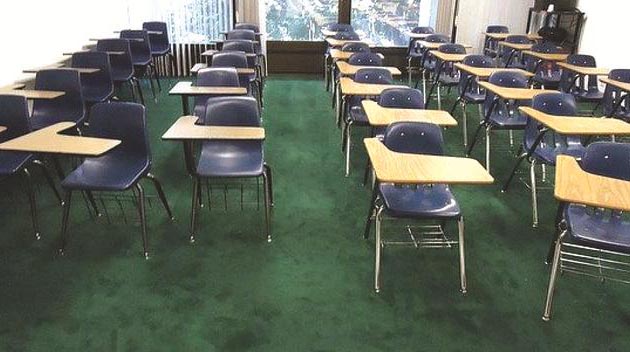The Ministry of Primary and Secondary Education has been allocated 315 million Zimbabwe dollars by the treasury to prepare for the re-opening of schools for examination classes.
The Permanent Secretary in the Ministry of Primary and Secondary Education, Tumisang Thabela announced the development during the launch of the seSotho radio lessons in Mashaba Gwanda district this Wednesday.
The allocation will be used to ensure that examination classes have adequate personal protective equipment (PPEs) while the Global Partnership for Education will be assisting in the rehabilitation of boreholes in 1000 schools.
“We have been allocated 315 million dollars by the government which will be used to source PPEs in ahead of the opening of schools. We have received tremendous support from our partners who will be assisting us to rehabilitate our boreholes, while we try to source more money for more water sources.”
For non-examination classes, Thabela said the government has adopted a number of strategies to ensure learners continue with home-schooling, amid the COVID-19 pandemic.
She however, stressed the need for government to extend radio transmission services as well as continue funding the rural electrification programme to improve internet connectivity in the communities.
“We are also here to lobby and appeal to the Ministries of Information and the Ministry of Energy to try and cater for this area so that our children are not left behind.”
Speaking at the same occasion, the Acting Provincial Education Director, Lifias Masukume said radio lessons have been recorded for the benefit of learners in the province.
“As a province, we have recorded 50 lessons with Montrose studios which we believe will go a long way in ensuring that our children continue with their lessons.”
Meanwhile, World Vision has handed over tablets to learners at Mashaba, as part of a programme that will be extended to all primary schools in Gwanda district.
“We saw it fit to support children in Gwanda district with the programme having so far benefited 42 schools. The idea really is to ensure that our rural children move with the times, and benefit from these gadgets that have internal routers,” said World Vision Programmes Manager Tendai Nare.
Mashaba primary school is one of the major beneficiaries of a 99kw solar mini grid project, which has seen the facility adopting e-learning.
The Ministry of Primary and Secondary Education is looking to replicate the successful model at the school in other districts.
-ZBC













